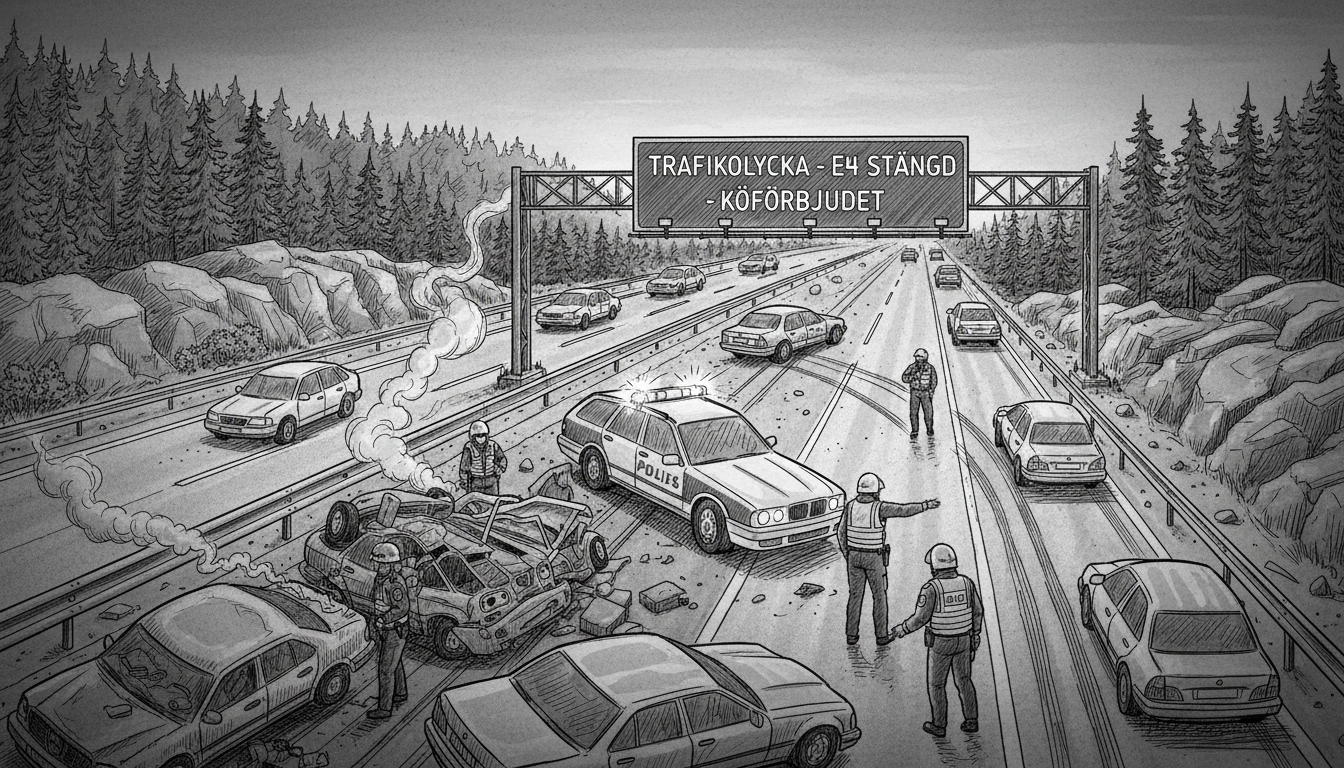A serious traffic incident unfolded Wednesday afternoon on Sweden's E4 highway near Gävle. Multiple vehicles collided during the busy evening commute, forcing a complete shutdown of traffic flow. Authorities now report receiving numerous calls about drivers making dangerous U-turns and traveling in the wrong direction on the motorway.
The emergency alert came through just before 5 PM local time. Police confirmed the accident via their official channels but noted that injury details remain unclear. This type of secondary dangerous behavior often compounds initial traffic incidents, creating additional safety risks for everyone involved.
Swedish highway safety protocols emphasize staying in vehicles during accidents unless directed otherwise by emergency personnel. The E4 represents one of Sweden's most vital transport corridors, connecting Stockholm with northern regions. Such incidents disrupt not just individual travel plans but commercial transport and regional connectivity.
Sweden's traffic management system typically responds efficiently to accidents, but wrong-way driving presents particular challenges. Emergency services must secure the scene while preventing additional dangerous maneuvers by frustrated motorists. This situation highlights the importance of driver patience during unexpected highway closures.
International readers might find Sweden's highway safety record generally strong, but this incident shows how quickly situations can escalate. The country's dark winter afternoons can complicate emergency response efforts, especially in rural highway sections. Local authorities likely deployed additional resources given the secondary complications reported.
What happens next typically involves thorough investigation by Swedish traffic police. They will determine the collision's cause while reviewing reports of subsequent wrong-way driving. Such investigations often lead to renewed safety campaigns about proper behavior during highway incidents.
For Stockholm residents traveling north, alternative routes through Uppsala or coastal roads might experience increased traffic. The E4 closure affects both personal travel and commercial transport between central Sweden and northern destinations. Regional businesses often feel the impact of such major highway disruptions.
Swedish society maintains high expectations for traffic safety and orderly conduct during emergencies. This incident's development suggests some drivers prioritized personal convenience over collective safety. Such behavior contradicts the communal values typically associated with Swedish culture.

